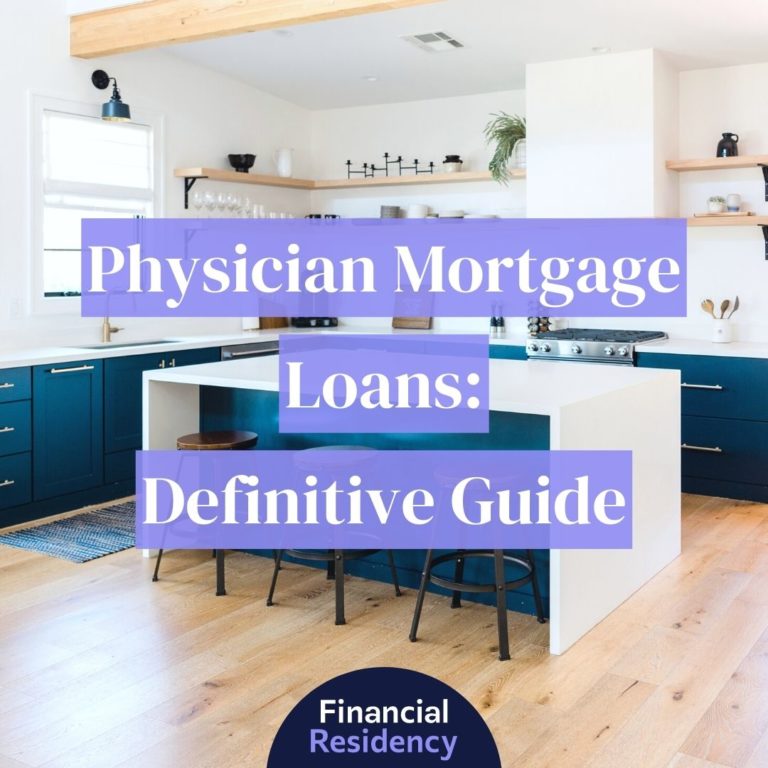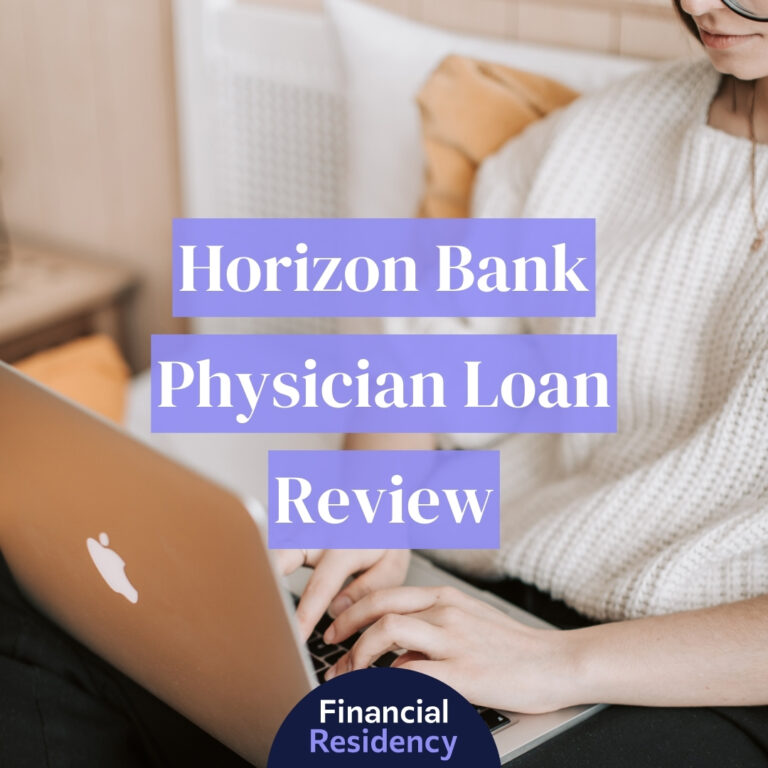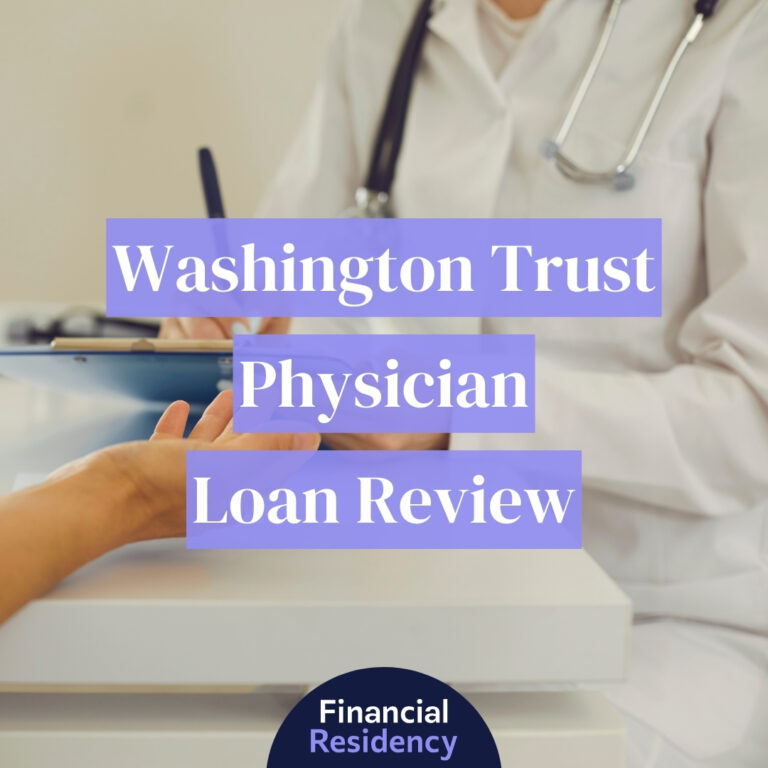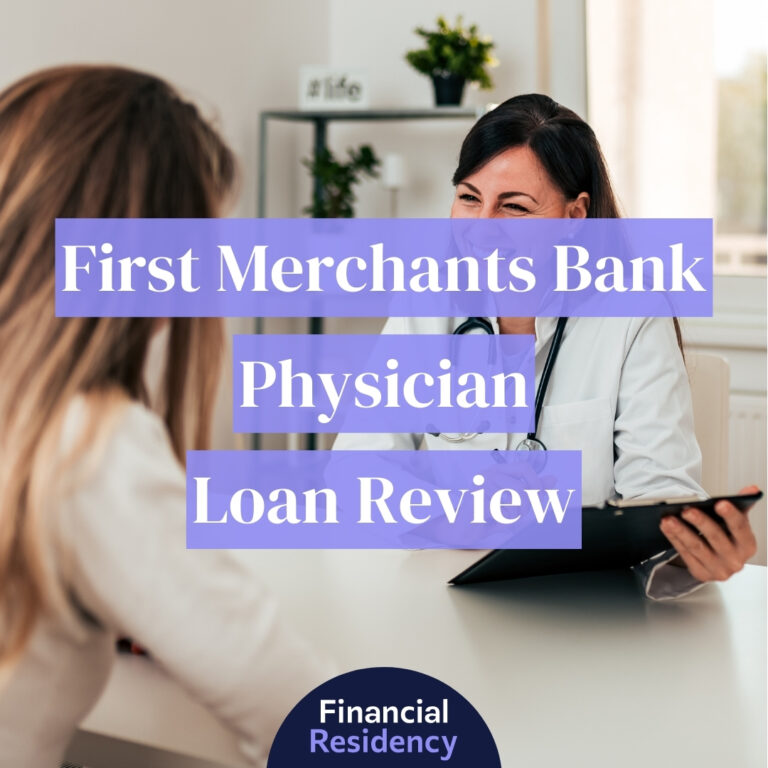Many early-career medical professionals feel boxed out of the home-buying process due to their debt-to-income ratio from medical school expenses, but physician mortgage loans in Idaho can reduce many of these stressors.
A physician mortgage loan in Idaho may be the perfect tool for your financial playbook if you’re considering refinancing your existing home or purchasing your dream home.
There are more than 3,300 practicing physicians who call The Gem State home and homeownership can help budding medical professionals set down permanent roots in the community they serve.
Idaho offers over 1.9 million residents a land full of natural resources. Idaho is one of the largest states in the United States, giving its inhabitants ample opportunity to spread out or live near a thriving big city.
We’ve vetted the best physician mortgage loan programs in Idaho so you can easily connect with a knowledgeable lender who understands the unique financial challenges of purchasing or refinancing a home for professionals with demanding careers.
9 Best Idaho Physician Home Loan Lenders
Here are the top physician mortgage loan lenders in ID:
- BMO Bank
- Citizens Bank
- Evolve Bank & Trust
- Flagstar Bank
- Huntington Bank (previously TCF Bank)
- KeyBank
- NEO Home Loans
- UMB Bank
- US Bank
Discover The Best Lenders in Idaho Answer just a few questions about your career, where you're buying, and how much you want to borrow. Our service will then show you the exact programs you're eligible for from vetted physician loan specialists who will guide you through every step of the process – obligation-free!
1. BMO Bank
- BBB Grade: A+
- JD Power Score: 805
BMO Bank, formerly known as BMO Harris Bank, extends its Physicians’ Mortgage Program to licensed residents, fellows, and doctors within the following medical designations:
- MD (Medical doctor)
- DO (Doctors of osteopathic medicine)
- DDS (Doctors of dental surgery)
- DMD (Doctors of dental medicine)
Loans may be used to purchase a new home or refinance a primary residence you already own. Rate/term and cash-out refinancing options are available. Eligible property types include 1-2 unit properties, single-family homes, townhouses, and condominiums.
Some physician loan programs exclude medical professionals who have been practicing for more than 10 years. BMO Bank doesn’t exclude later career medical professionals, but it does limit more experienced providers to 90% financing options.
Qualified borrowers within 10 years of beginning their careers can secure up to 95% financing on loan amounts of up to $1.5 million. The program is capped at 90% financing for loans up to $2 million. All financing options through this program exclude private mortgage insurance (PMI).
A residency agreement or future employment contract can be accepted for doctors who don’t have sufficient work history as long as the applicant will begin work within 90 days of closing. Underwriters will also be flexible in their consideration of student loan debt.
All standard fixed and adjustable-rate mortgage products are available.
2. Citizens Bank
- BBB Grade: A+
- JD Power Score: 818
Citizens Bank provides special financing to residents, doctors, and dentists with an MD, DO, DDS, or DMD degree through its physician loan program. All applicants must be within ten years of completing residency to qualify.
Citizens Bank’s physician mortgage loan program will provide up to $1.5 million for purchasing an existing property, refinancing a home you already own, or building your dream home.
Borrowers can secure up to $850,000 with just a 5% down payment, up to $1 million with a 10% down payment, or up to $1.5 million with a 15% down payment. As is standard for physician loan programs, PMI is not required.
Student loans deferred for more than 12 months are not included in DTI calculations, but it’s not the only option Citizens Bank offers. Borrowers on an income-driven repayment plan can use their actual monthly payments to qualify.
Opening a Citizens Bank account may provide additional opportunities for discounts.
3. Evolve Bank & Trust
- BBB Grade: B
- JD Power Score: N/A
Evolve Bank & Trust offers one of the more inclusive physician mortgage loans in Idaho, but all applicants must be within 10 years of completing their residency programs to qualify. It will provide special financing options for the following medical professionals:
- MD
- DO
- DDS
- DMD
- PA
- NP
- DVM
- CRNA
- DC
- OD
- DPM
- PharmD/RPH
- Clinical Nurse Specialists
Self-employed medical professionals are eligible.
Loans may be used to purchase a 1-4 unit family home, single-family residence, condominium, or new construction. The lender will work with borrowers to calculate an aggressive DTI ratio that is more likely to be approved. It will also work with lower credit scores than many of its competitors.
Evolve Bank & Trust provides fully underwritten pre approval so borrowers can go into the home-buying process with confidence. Gift funds are allowed as is a non-occupant cosigner, which isn’t the case with all physician mortgage programs.
The program provides 100% financing on loans up to $1 million, 95% financing on loans up to $1.25 million, 90% financing on loans up to $1.5 million, and 85% financing on loans up to $2 million. The program may extend loans over $2 million to qualified borrowers.
Minimum reserves will be required but the total amount depends on the loan amount and borrower’s credit background.
4. Flagstar Bank
- BBB Grade: NR
- JD Power Score: 781
Flagstar Bank’s Professional Mortgage Program goes several steps further than Evolve Bank and Trust’s Medical Professional program by including high-earning professionals outside of healthcare. Like other physician programs, it requires its applicants to be within 10 years of beginning their careers.
The following professionals may seek special financing options through Flagstar Bank:
- Medical Resident (Educational License)
- Medical Doctor (MD)
- Doctor of Dental Surgery (DDS)
- Doctor of Dental Medicine (DMD)
- Doctor of Optometry (OD)
- Doctor of Ophthalmology (MD)
- Doctor of Pharmacy (PharmD, RPH)
- Doctor of Podiatric Medicine (DPM)
- Doctor of Osteopathy (DO)
- Physician Assistant (PA)
- Registered Nurse (RN)
- Nurse Anesthetist (CRNA)
- Nurse Practitioner (NP)
- Clinical Nurse Specialist
- ATP Pilot
- Certified Public Accountant (CPA)
- Attorney (JD)
- Veterinarian (DVM)
Borrowers can qualify for no money down financing options on loans up to $1 million with a 720 minimum credit score, but the lender provides low down payment options for loans up to $1.25 million. All down payment options waive PMI requirements.
All borrowers must be first-time home buyers and have not purchased a home in the last three years. Loans may be used to purchase or rate/term refinance a single-family home, condominium, or townhouse.
It’s important to note that Flagstar Bank’s Professional Mortgage Program only offers adjustable-rate mortgages, which means the interest rate will change throughout the loan term. All loans will have an initial fixed interest rate for 60, 84, or 120 months before eventually resetting to the current market’s interest rates.
5. Huntington Bank (previously TCF Bank)
- BBB Grade: A+
- JD Power Score: 821
Huntington Bank created its physician-only mortgage product to meet the complex financial needs of physicians, veterinarians, and dentists with an MD, DO, DVM, DMD, or DDS degree. While the program doesn’t stipulate age limits, it does require proof of sufficient income and cash reserves.
Sufficient income can be proved through several years of tax returns or an active employment contract. Minimum reserve requirements will vary depending on the loan amount.
Borrowers may secure up to 100% financing on loans up to $1 million. Loans up to $1.25 million require at least a 5% down payment and loans up to $2 million require at least 15% down.
Every borrower is subject to loan caps relative to their cash reserves, credit score, and income limitations, which means not all borrowers will be eligible for the program’s maximum loan amount.
Loans are limited to the purchase or refinance of a primary residence. Cash-out refinances are available for borrowers who are interested in leveraging their home equity to pay down debt. However, the program limits cash to $50,000 while all other equity must be used to satisfy outstanding debt obligations.
6. KeyBank
- BBB Grade: A+
- JD Power Score: 777
KeyBank is one of the most generous programs on this list. Medical doctors, doctors of osteopathic medicine, doctors of dental surgery, doctors of dental medicine, and podiatrists are eligible for up to $3.5 million in financing.
Qualified borrowers can secure up to 95% financing for the purchase or refinance of a primary residence or second home. Eligible properties include attached or detached single-family homes, condominiums, and townhouses.
Fixed and variable interest rate mortgage products are available.
7. NEO Home Loans
- BBB Grade: A+
- JD Power Score: N/A
NEO Home Loans offers local physician loan homes to physicians, dentists, and other medical professionals, including interns, residents, and J-1 visa holders. The following medical designations are accepted:
- MD
- DMD
- DDS
- DO
- RPH/PharmD
- DC
- DVM
- OD
- DPM
- DCH
Qualified medical professionals may borrow up to $1 million with 100% financing or up to $2 million with 95% financing. Borrowers may even finance a 2 unit property and use one unit to generate additional income while using the other as their primary residence.
The lender is also flexible with student loan debt and employment history, so borrowers can purchase or refinance their homes before starting their busy jobs.
8. UMB Bank
- BBB Grade: A+
- JD Power Score: 791
UMB Bank provides special financing to practicing medical professionals with at least one of the following degrees:
- MD
- DO
- DMD
- DDS
- PharmD
While it is more inclusive than some physician loan programs, its low down payment options are reserved for attending physicians only. The program does not have an age restriction, meaning medical professionals can apply even if they’ve been practicing for more than a decade.
UMB Bank offers the following down payment options:
- 0% down on loans up to $1 million
- 5% down on loans up to $1.5 million
- 10% down on loans up to $2 million
9. U.S. Bank
- BBB Grade: A-
- JD Power Score: 820
U.S. Bank extends its physician mortgage loan program to residents, fellows, medical doctors, and doctors of osteopathic medicine in Idaho. All applicants must hold a qualifying degree, active medical license, and a 710 minimum credit score.
The following down payment options are available, all of which exclude PMI:
- 5% on loans up to $1 million
- 10% on loans up to $1.5 million
- 15% on loans up to $2 million
Student loan debt isn’t entirely excluded, but underwriters will be more lenient than conventional loan programs.
Underwriters will use the actual monthly payment amount for borrowers on an income-driven repayment plan or 2% of the total loan balance for borrowers in deferment.
Existing U.S. Bank customers may be able to secure a 0.25% lender credit up to $1,000, which can minimize closing costs.
How Physician Mortgage Loans Work in Idaho
Physician mortgage loans are often called doctor mortgages because they are designed to meet the needs of high-earning medical professionals––more specifically doctors. However, physician loan programs have a range of inclusivity.
Doing your due diligence through research and an open line of communication with a loan officer you trust can help you narrow down your eligibility.
The most exclusive programs are only available to medical doctors and doctors of osteopathic medicine, but some lenders open their doctor mortgages to other high-earning professionals, such as nurse practitioners, physician assistants, dentists, and veterinarians.
Physician mortgage loans are designed to eliminate many of the barriers early-career medical professionals face on the path to ownership.
Underwriters for physician mortgage loans are more flexible when calculating debt-to-income ratios, may offer no money down financing options, and will accept employment contracts as proof of earning potential.
Flexibility with Debt-to-Income Ratio
Student loan debt is often excluded or considered differently than other debt. Some programs will wholly exclude student loan debt deferred for 12 months or more.
Other programs are more opaque, but advertise that they will be more lenient than conventional loan programs. Physician loan officers may also accept higher DTI ratios than conventional mortgages.
Flexibility with Down Payment Options
Because physicians and other healthcare professionals have dedicated years of their lives to their education, they often don’t have the income necessary to save for a large down payment. Physician loans will provide 85–100% financing for qualifying borrowers on loans up to $2 million in many cases.
No Private Mortgage Insurance
While conventional loans require private mortgage insurance when borrowers have less than 20% equity in their homes, physician loans waive this requirement, which can reduce monthly payments by hundreds of dollars.
Flexibility with Work History
Physician loan programs are also kind to healthcare professionals who have yet to start work or have to relocate for their jobs. Loan officers will accept future-dated employment contracts that outline a clear base salary and a start date within 60–90 days of closing.
Property Eligibility
While physician loan programs are more lenient than conventional mortgages in some ways, they can be more strict in other ways. For example, physician mortgages will only provide financing for an eligible property––usually an owner-occupied single-family residence.
Higher Minimum Credit Score Requirement
Physician mortgage loans also require a higher credit score than conventional loans and government-backed mortgage programs. While borrowers could qualify for an FHA loan with a score as low as 580, physician mortgage loans require a minimum credit score of around 700.
Pros and Cons
Financial decisions require careful consideration because the consequences are likely to affect you and your family for years to come.
One part of this consideration is taking time to review the upsides and downsides of any mortgage program you qualify for.
We’ve prepared a few of the stand-out pros and cons of physician mortgage loans in Idaho so you can make the decision that’s best for your unique needs.
Pros
- Low down payment options: Physician mortgage loans offer lower down payment options than conventional loans. Borrowers can access as much as 95–100% financing when they qualify for a doctor mortgage loan.
- Flexible debt-to-income ratio calculations: Loan officers are kind to early-career healthcare professionals with high student loan debt––often excluding deferred student loan debt or using the actual monthly payment for income-driven repayment plans.
- Lenient employment history: New physicians and residents have spent years training for the profession at the expense of building a stable income history. Physician loan underwriters will accept employment contracts for healthcare professionals who have not yet started their new jobs.
- Open to various high-income earners: Despite the name, doctor mortgage loans are open to more than physicians. Advanced-degree nurses, dentists, veterinarians, and accountants may also qualify depending on the loan program.
- Higher loan limits: Physician loans aren’t conforming loans, so borrowers can access larger sums of money than they could through many conventional mortgages.
- No private mortgage insurance: Physician mortgages don’t require PMI added to monthly payments, which can save borrowers thousands throughout the loan term.
Cons
- Primary residence restrictions: Physician mortgage loans are typically restricted to the purchase or refinancing of an owner-occupied primary residence. Second homes and investment properties are rarely eligible.
- Adjustable-rate mortgages: Some physician mortgage loan providers only offer adjustable-rate mortgages, which can be more expensive than fixed-rate loans in the long term.
- Jumbo loans: Higher loan limits can be an advantage, but it can also make it easier to borrow outside your means.
- Closing costs and cash reserves: Physician mortgage loans aren’t without their costs. Many borrowers will be required to demonstrate sufficient funds in their savings accounts to cover closing costs and cash reserves.
- Higher credit score: Physician mortgage loans generally want a minimum credit score between 700–710 to qualify for 100% financing.
Frequently Asked Questions
What are the interest rates for physician mortgages in 2023?
In January 2023, the physician loan interest rates sat around 6.5%. In May 2023, the current average interest rate for a 30-year fixed-rate conventional mortgage is 7.11%. Physician mortgage loans often have a higher interest rate than conventional loans, but the rates can be competitive for borrowers with an excellent credit background.
Do physician loans have higher interest rates?
Yes, physician loans often have higher interest rates than conventional loans, but there are exceptions. Borrowers may also prepay future mortgage payments or put in a larger down payment to lower interest rates in some cases.
What should your credit score be to get the maximum physician loan amount?
You should have at least a 700 minimum credit score to be able to shop various loan programs and have a good chance of qualifying. However, some lenders require a 710-720 minimum credit score to qualify for no money down financing options.
What is the maximum mortgage amount for a physician loan?
The maximum mortgage amount for a physician loan depends on the lender. In our research of physician loans across the country, we’ve seen mortgage amounts as high as $3.5–$5 million. In general, it’s more common to see physician mortgage loans capped at around $2 million.
What is the most important factor to consider when refinancing a physician loan?
The most important factor to consider when refinancing a physician loan is what you want your monthly payment to be. Interest rates and loan terms are highly personalized based on a variety of factors, but most often, it comes down to credit score and loan amount.
Your interest rate will have a major impact on your monthly payment, so you’ll want to make sure you can comfortably afford the monthly payment for your loan at the current interest rate.
It typically makes sense to refinance if you have a lot of equity in your property that you would like to leverage for other endeavors or if the interest rates have dropped significantly since you first opened the loan account.
Who is a Physician Loan in Idaho Best For?
If you’re teetering on the edge of a decision, it may be helpful to look at examples of people who stand to benefit from a physician mortgage loan in Idaho.
We’ve prepared a few example scenarios that can help you decide if a physician mortgage program is the right choice for your complex and unique financial situation.
1. Healthcare professionals with high debt
Medical school and other higher education paths are expensive. These costs often require its participants to take out substantial loan balances.
Upon graduation, healthcare professionals can feel barred from conventional mortgages because this debt skews their DTI, especially in the early stages of their careers when full income potential hasn’t been reached.
Physician loan programs remove this barrier by excluding deferred student loan debt, using the actual monthly payment for those on income-driven repayment plans, and making other special considerations to lower calculated DTI.
2. Private practice owners
Private practice operators may be medical professionals, but they’re also small business owners. Small businesses don’t have the support of multinational locations and a pool of investors, which can make income inconsistent and unreliable.
As such, operators need to make prudent financial decisions that keep money within the business.
Physician loan programs make this possible by reducing the down payment requirement. Borrowers can often secure large loan amounts for as little as 0–5% down without worrying about PMI increasing their monthly payments.
3. Medical residents relocating for a new job
Medical residents have to go where their programs are, which often requires relocating to another city or state. It can be expensive to move, but it can also be difficult to secure an apartment or purchase a home without existing employment.
Physician loans allow medical residents to purchase or refinance their homes when they sign a residency agreement that starts within 60–90 days of closing. This flexibility allows physicians to settle into their life before taking the next big step in their careers.
4. Savvy shoppers with high credit scores comparing mortgage lenders
Comparing mortgage lenders can be one of the best ways to get a competitive rate. Medical professionals with very good to excellent credit are in the ideal position to qualify for multiple programs and shop for the best rate.
In the case of physician loans, higher credit scores generally have access to more favorable loan terms. For example, a 720 credit score can help a qualified medical professional secure 100% financing, which can reduce the expenses of purchasing a home.
Moving to a Different State?
Click on the state you are moving to and get the best physician mortgage loan lenders in that state:
Learn more about physician home loans.




